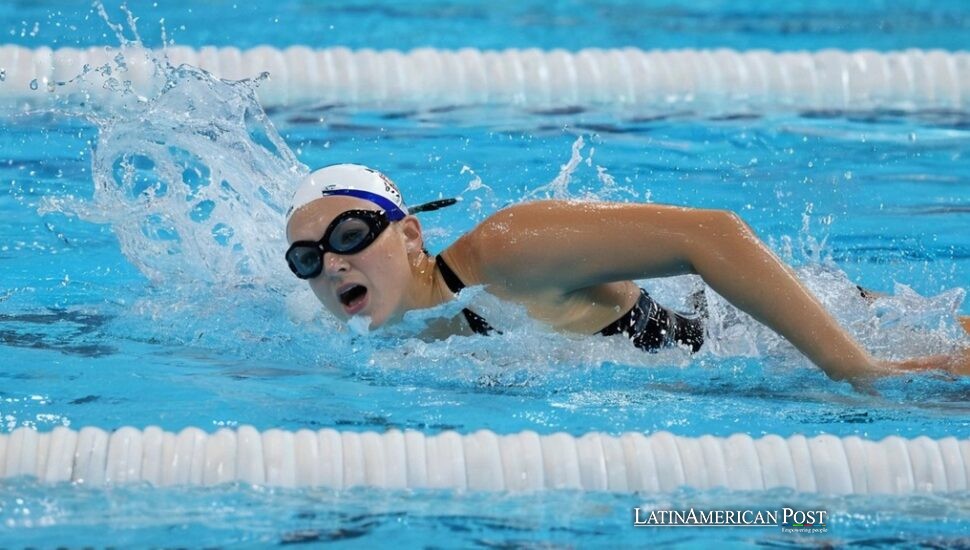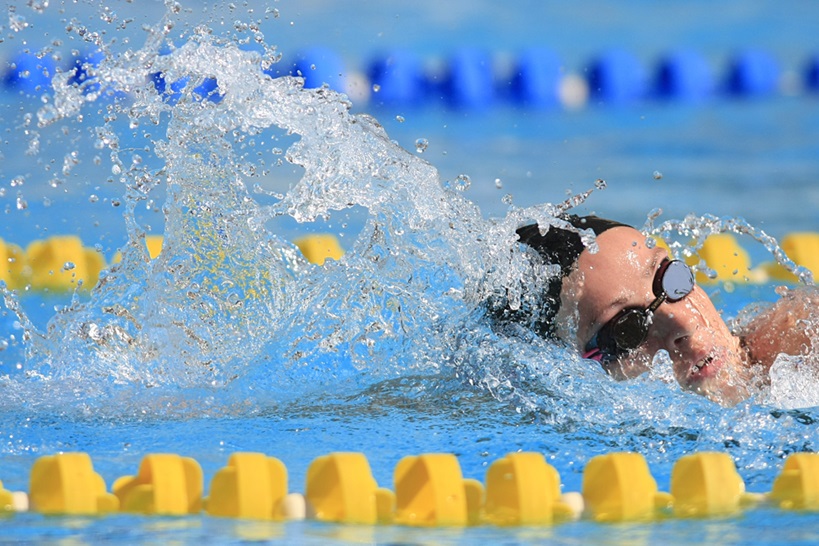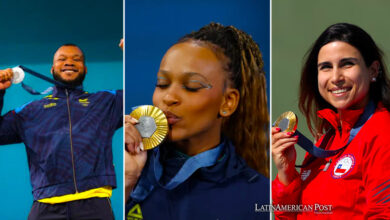Chilean Star Köbrich’s Relentless Pursuit of Swimming Perfection

Kristel Köbrich climbs from bed at 4 A.M., sliding into Chile’s lone Olympic pool before dawn. At thirty-nine, she has qualified for her thirteenth consecutive World Championships and secured a place at her sixth Olympic Games, rewriting swimming’s notion of time limits.
Before Sunrise, After Records
Santiago usually lies silent when Köbrich begins her day. The streetlights flicker, and she is already pacing toward the water, intent on her customary twenty-kilometer routine split between morning and afternoon sessions. That devotion has remained intact since she left home at seventeen, searching for deeper lanes and more formidable rivals. Even the pandemic, which closed pools across South America, could not derail her rhythm; she tethered herself to a bungee cord in a backyard plunge pool and churned against invisible currents rather than surrender her precious feel for the water. “If I wake up and no longer crave chlorine,” she laughed to El Mercurio earlier this year, “then I will finally retire. The craving has not faded.”
Thirteen Worlds, Six Olympiads
When the starter’s gun echoes across Singapore in July, Köbrich will become the only swimmer, male or female, to appear at thirteen straight long-course World Aquatics Championships, a streak that began in Barcelona in 2003 and has stretched through every edition since, according to World Aquatics’ historical archive. Her Olympic chronology is just as improbable. She marched into the Athens Opening Ceremony in 2004 as Chile’s eighteen-year-old flag-bearer, finished fifteenth in the 800-metre freestyle, and then quietly promised herself she would last. Beijing 2008, London 2012, Rio 2016, and Tokyo 2020 followed.
Now Paris 2024 beckons after World Aquatics issued her a universality invitation to the 1500-metre event, allowing her to join a microscopic group of six-time Olympians that includes Sweden’s Therese Alshammar and Tunisia’s Oussama Mellouli (Olympics.com, 2025). Along that road, she has seized South American records in the 800 and 1500-meter freestyle, long and short course, plus every Chilean freestyle mark from 200 through 1500 meters and the 400-meter individual medley. The numbers confirm what her rivals already know: longevity can be lethal.

@kristelkobrich
Fuelled by Disappointment, Driven by Youth
Last August, the Paris test event at La Défense Arena left a bitter aftertaste. Köbrich touched in 8 minutes 46 seconds during the Olympic heats, next-to-last in the field. Cameras caught her shrug of frustration. “That time is not why I train,” she told EFE, pulling her parka over damp shoulders. Anger became oxygen. At April’s Fort Lauderdale Pro Series, she reclaimed momentum, posting 16 minutes 27 seconds for fifth in the 1500 and 8 minutes 41 seconds for ninth in the 800, performances that qualified Chile for the World Championships.
Chile’s federation announced the roster in May: an experienced captain flanked by two youngsters, eighteen-year-old Edhy Vargas and twenty-one-year-old Mariano Lazzerini. Vargas explained that simply sharing a deck with Köbrich adjusts ambitions; if the nation’s most decorated swimmer still hurls herself at dawn workouts, what excuse could he offer? Institutional support has followed her wake. Municipal councils that once threatened to drain aging pools now budget for renovations, citing her influence.
Legacy Written in Endless Laps
Köbrich will celebrate her fortieth birthday three weeks after the Paris heats, yet she refuses to pin an end date on her journey. She speaks instead of negative splits, of refining pacing strategies, of a possible farewell at the 2027 Pan American Games—but only if the heart agrees. Sociologist Francisca Díaz, addressing students at the Universidad de Chile this spring, argued that Köbrich has shifted Chile’s sporting imagination: “She proves that an athlete from a modest swimming nation can stand shoulder to shoulder with powerhouses as long as stubbornness and routine line up.” Köbrich herself keeps the sentiment simpler. Leaving the pool after another twilight session, she remarked, “One race, ten races—whatever it takes to walk away knowing there was nothing left inside.”
Also Read: Cuban Table Baseball Sparks New Passion for Country’s Classic Game
Her story stretches beyond lanes and stopwatches. It is a meditation on patience, the slow accumulation of meters, and the notion that mastery favors those who stay. When she surfaces in Singapore for a thirteenth World Championships, statisticians will update records, and broadcasters will recite superlatives. Still, the real scene unfolds hours earlier, in the half-light of an empty pool, where a swimmer greets water the way some greet dawn itself—certain that the day truly begins only after the first stroke.





